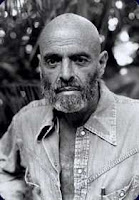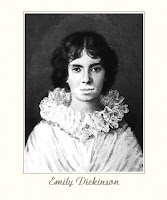For this post I am going to paraphrased a poem by a famous Chilean poet named Pablo Neruda. Originally it was in spanish, but I have managed to find one that has been traslated.
How neatly a cat sleeps,
sleeps with its paws and its posture,
sleeps with its wicked claws,
and with its unfeeling blood,
sleeps with all the rings--
a series of burnt circles--
which have formed the odd geology
of its sand-colored tail.
I should like to sleep like a cat,
with all the fur of time,
with a tongue rough as flint,
with the dry sex of fire;
and after speaking to no one,
stretch myself over the world,
over roofs and landscapes,
with a passionate desire
to hunt the rats in my dreams.
I have seen how the cat asleep
would undulate, how the night
flowed through it like dark water;
and at times, it was going to fall
or possibly plunge into
the bare deserted snowdrifts.
Sometimes it grew so much in sleep
like a tiger's great-grandfather,
and would leap in the darkness over
rooftops, clouds and volcanoes.
Sleep, sleep cat of the night,
with episcopal ceremony
and your stone-carved moustache.
Take care of all our dreams;
control the obscurity
of our slumbering prowess
with your relentless heart
and the great ruff of your tail.
sleeps with its paws and its posture,
sleeps with its wicked claws,
and with its unfeeling blood,
sleeps with all the rings--
a series of burnt circles--
which have formed the odd geology
of its sand-colored tail.
I should like to sleep like a cat,
with all the fur of time,
with a tongue rough as flint,
with the dry sex of fire;
and after speaking to no one,
stretch myself over the world,
over roofs and landscapes,
with a passionate desire
to hunt the rats in my dreams.
I have seen how the cat asleep
would undulate, how the night
flowed through it like dark water;
and at times, it was going to fall
or possibly plunge into
the bare deserted snowdrifts.
Sometimes it grew so much in sleep
like a tiger's great-grandfather,
and would leap in the darkness over
rooftops, clouds and volcanoes.
Sleep, sleep cat of the night,
with episcopal ceremony
and your stone-carved moustache.
Take care of all our dreams;
control the obscurity
of our slumbering prowess
with your relentless heart
and the great ruff of your tail.
PARAPHRASED!
Stanza 1
First, I am of the opinion that the poet is looking at a cat and thought of how comfortable it looks. With all the fluffy fur that will help it relax and sleep. For most of this first stanza, the poet is describing the cat.
First, I am of the opinion that the poet is looking at a cat and thought of how comfortable it looks. With all the fluffy fur that will help it relax and sleep. For most of this first stanza, the poet is describing the cat.
Stanza 2
The poet revealed how much he wants to sleep the way cat does. Cats do not have to socialize much and can freely lay and strecth to sleep anywhere it wants
The poet revealed how much he wants to sleep the way cat does. Cats do not have to socialize much and can freely lay and strecth to sleep anywhere it wants
Stanza 3
Next, the poet says that he had seen how a cat sleep and he mentions of the place the cat can sleep at. Perhaps the poet is envy of the cas ability to sleep freely
Next, the poet says that he had seen how a cat sleep and he mentions of the place the cat can sleep at. Perhaps the poet is envy of the cas ability to sleep freely
Stanza 4
Now the poet is encouraging the cat to sleep to experience the dreams that human desire. To slumber with no care of the world
Now the poet is encouraging the cat to sleep to experience the dreams that human desire. To slumber with no care of the world
FINAL SAY
Interesingly, the poet can be said as an animal person because in looking at his other poems, there are other mentioning of animals like dogs and birds. The poet managed to make us realised and think back to a moment when we last see a cat sleep and how much cofortable it looks.
Interesingly, the poet can be said as an animal person because in looking at his other poems, there are other mentioning of animals like dogs and birds. The poet managed to make us realised and think back to a moment when we last see a cat sleep and how much cofortable it looks.
If youre not satisfied by my paraphrasing of this poem, please leave a comment and say how you think it should be done.
THANK YOU









